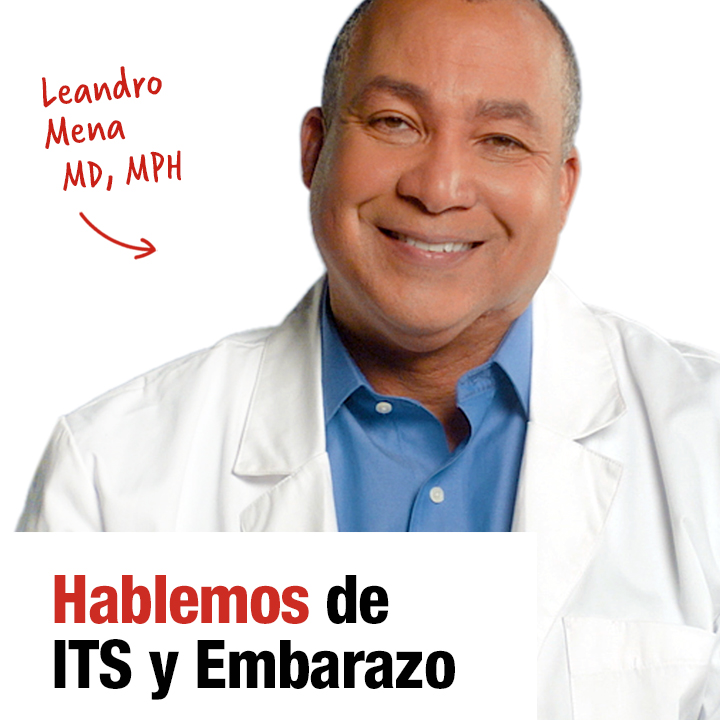Hablemos de ITS y Embarazo
Leandro Mena, MD, MPH
1920 x 1080 px MP4 (16:9) YouTube Link
1080 x 1920 px MP4 (9:16) YouTube Link
Transcripción:
Soy el doctor Leandro Mena y estoy aquí para hablar de las ITS.
Como parte de la evaluación de las mujeres embarazadas, incluye el chequeo de varias enfermedades de transmisión sexual. Importantes es la clamidia, la gonorrea y la sífilis. Tanto la gonorrea como la sífilis pueden producir infecciones en los recién nacidos y la sífilis está asociada con la sífilis congénita, que es causa de gran morbilidad y mortalidad infantil. Hasta 7 por ciento de los bebés pueden nacer muertos o perderse durante el embarazo.
Hay una manera muy eficiente de prevenir esto y es a través de proveer tratamiento adecuado y con tiempo a la mamá que está embarazada. Dando el tratamiento solamente 30 días antes de que el bebé nazca, se puede prevenir la sífilis congénita. Por tanto, es tan importante que todas las mujeres que están embarazadas se hagan la prueba de sífilis al momento de la primera visita prenatal y muchas veces se les tenga que hacer este se les repita al momento de en el tercer trimestre y al momento de dar a luz, dependiendo si vive en áreas donde hay una incidencia alta de sífilis congénita.
Lo más importante es hablar con el proveedor de salud y asegurarse que se hacen las pruebas.
—
Transcript:
I am Dr. Leandro Mena and I am here to talk STIs.
As part of the evaluation of pregnant women, it includes checking for various sexually transmitted diseases. Important is chlamydia, gonorrhea and syphilis. Both gonorrhea and syphilis can cause infections in newborns, and syphilis is associated with congenital syphilis, which is a cause of high infant morbidity and mortality. Up to 7 percent of babies can be stillborn or lost during pregnancy.
There is a very efficient way to prevent this and that is by providing adequate and timely treatment to the pregnant mother. Only by giving treatment only 30 days before the baby is born can congenital syphilis be prevented. Therefore, it is so important that all women who are pregnant are tested for syphilis at the time of their first prenatal visit and often have to be tested again in the third trimester and at the time of delivery, depending on whether they live in areas where there is a high incidence of congenital syphilis.
The most important thing is to talk to your health care provider and make sure you get tested.



